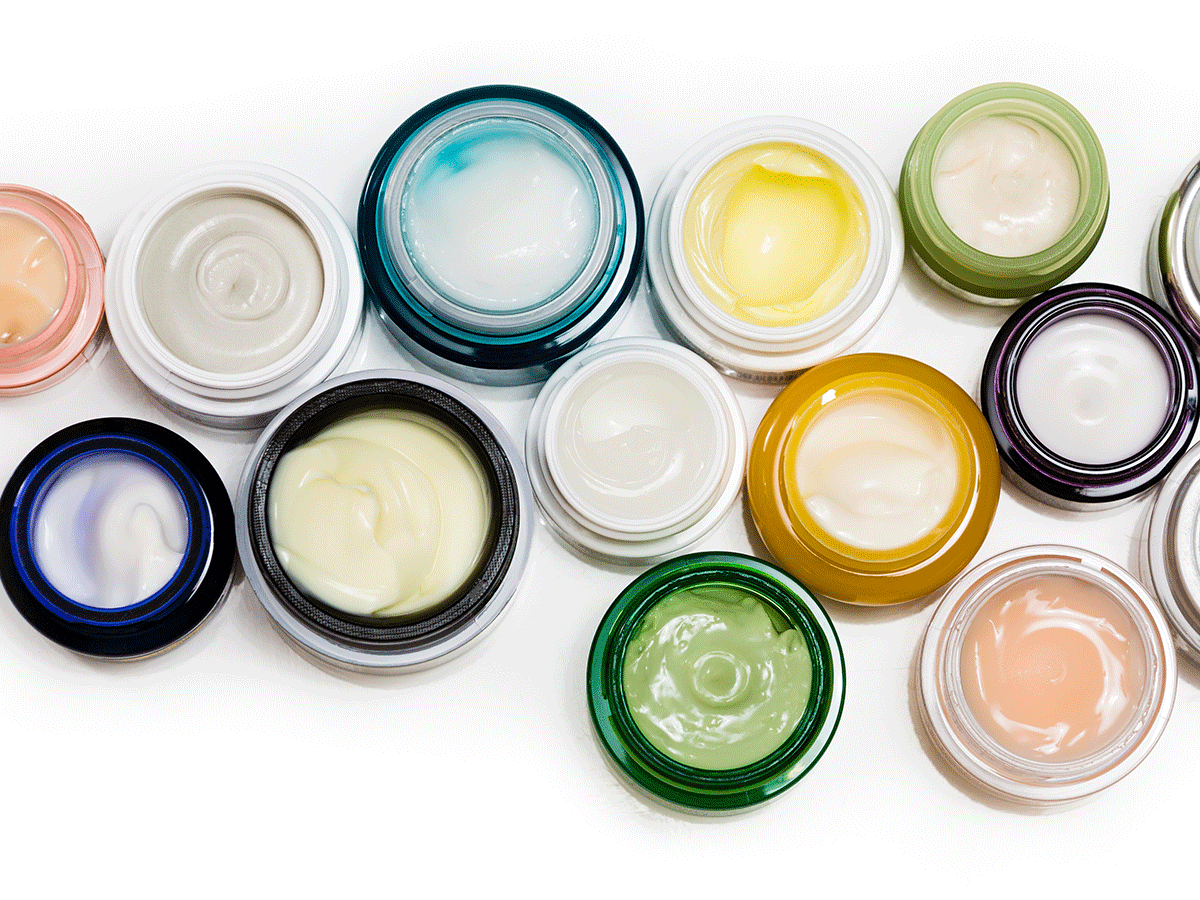
The sneaky skin wreckers in your bathroom cabinet
If you’re wondering what causes acne, the reality is that no one is really sure—there are many potential reasons behind troublesome skin, according to Mona Gohara, MD, an associate clinical professor at the Yale School of Medicine and a dermatologist at Dermatology Physicians of Connecticut in Branford. They include hormonal issues, not changing your pillowcase frequently, a fatty and sugary diet, or the wrong skincare regimen for your skin type, says Kerri Daniels, a skin consultant with the global beauty brand, PMD Beauty. (Be sure to check out this list of skin conditions that look like acne but aren’t.)
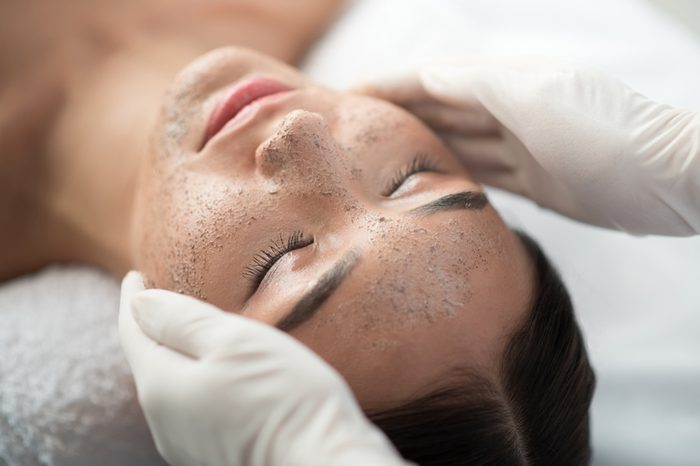
Salicylic acid
Salicylic acid, which is a good treatment for whiteheads, may be too harsh on acne for some people, so Daniels suggests using it sparingly. “It can be used in small doses as spot treatments,” says Daniels, who is also a New Jersey- and New York-based model.
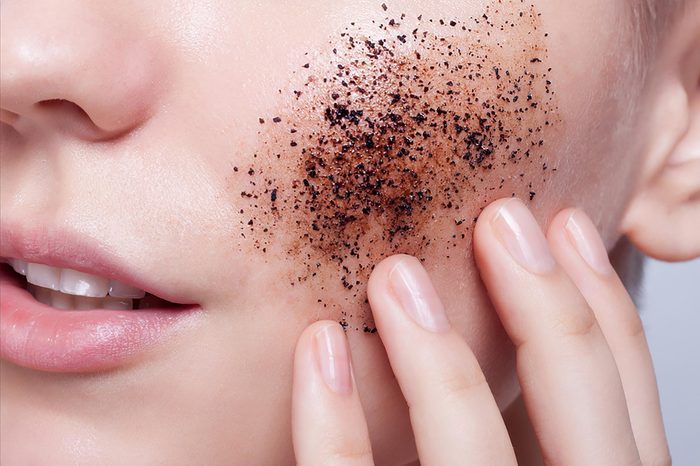
Exfoliating beads
Treating your dull skin to some exfoliation sounds like a treat. But be cautious. Rather than gently sloughing away dead skin cells, harsh exfoliating beads may actually be what causes acne and irritation. “Exfoliating beads are bad for acne because they inflame the skin, making the condition worse and more protracted,” says Dr. Gohara.
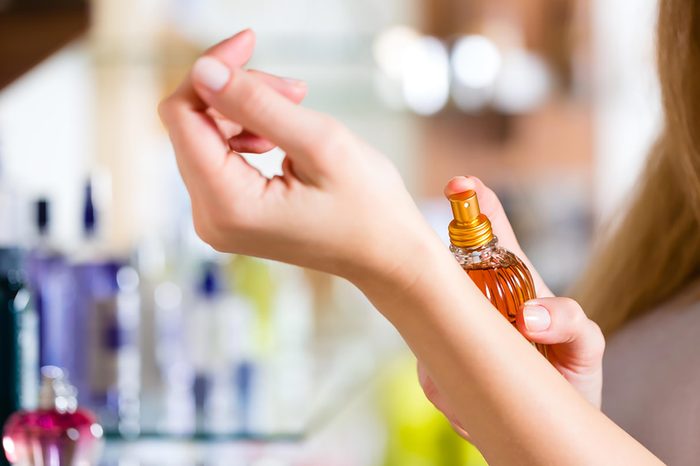
Fragrance
The smell of citrus might perk you up in the morning, but you shouldn’t use scented products on your face. “Fragrance and perfumes can be found in many over-the-counter washes and scrubs marketed toward acne-prone skin,” says Dr. Gohara. However, these products could be what causes acne. If you have dry skin or find yourself scratching your face throughout the day, add unscented products to your skincare routine.
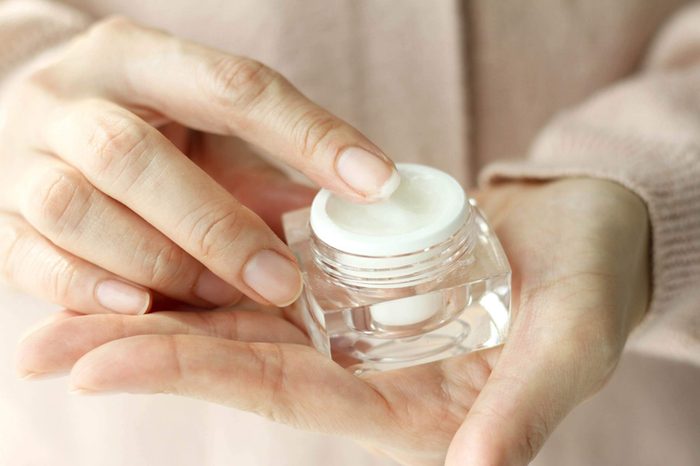
Retinol
Information published in 2017 in the journal Dermatology and Therapy explains that topical retinol use is “highly efficacious on both noninflammatory and inflammatory acne lesions.” However, it also states that there are several concentrations and formulations available. So, consider asking your dermatologist what’s right for your specific needs. This way, you can avoid side effects that may occur with topical retinoids like possible irritation and dryness. (Thinking about trying it? Here’s what retinol newbies need to know.)
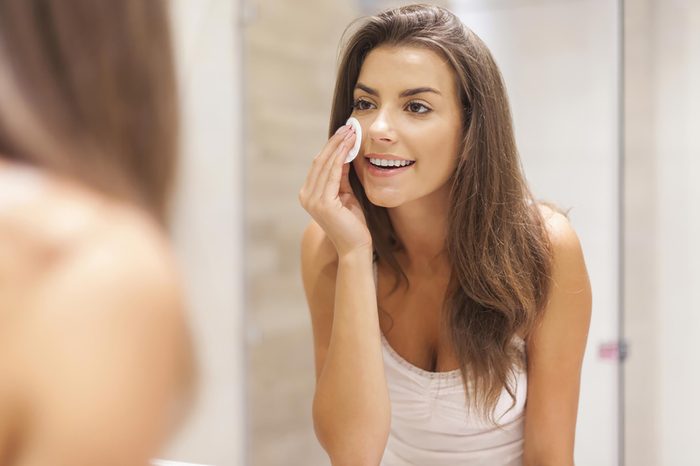
Benzoyl peroxide
Many over-the-counter face washes and spot treatments boast benzoyl peroxide as their star acne-fighting ingredient. According to the Mayo Clinic, benzoyl peroxide is “effective and tolerated by most people.” But they also indicate that stronger is not always better. It may be what causes acne, or at least worsens it. Over-the-counter benzoyl peroxide products, the Mayo Clinic notes, range in strengths from 2.5 to 10 percent. Consider a 2.5 percent; it can work as well as stronger concentrations, minus possible side effects like redness, stinging, and dry skin. (Favour natural ingredients? See if you should treat acne with essential oils.)
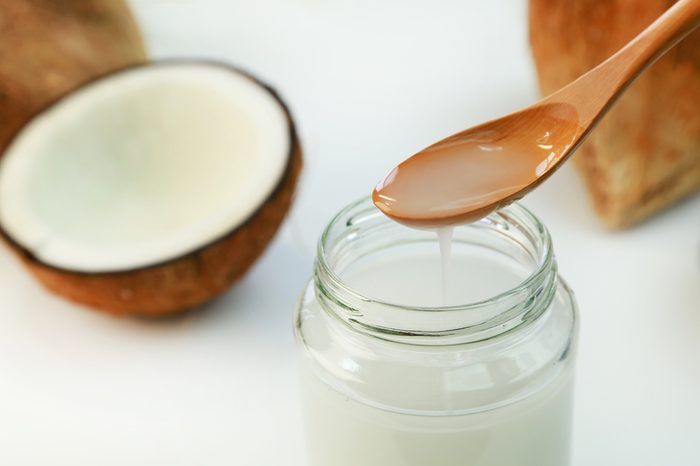
Coconut oil
Coconut oil has had its share of good-versus-bad hype through the years. But Jonathan Kantor, MD, the medical director at the Florida Center for Dermatology in St. Augustine, Florida, suggests thinking twice about using it on your skin. “When it comes to acne-prone skin, coconut oil, like any other oil, is a bad idea,” he says. “It is occlusive and thick which means it can clog pores and, if you are prone to breakouts, will probably make things worse, not better.” (Check out why a Harvard professor calls coconut oil “pure poison.”)
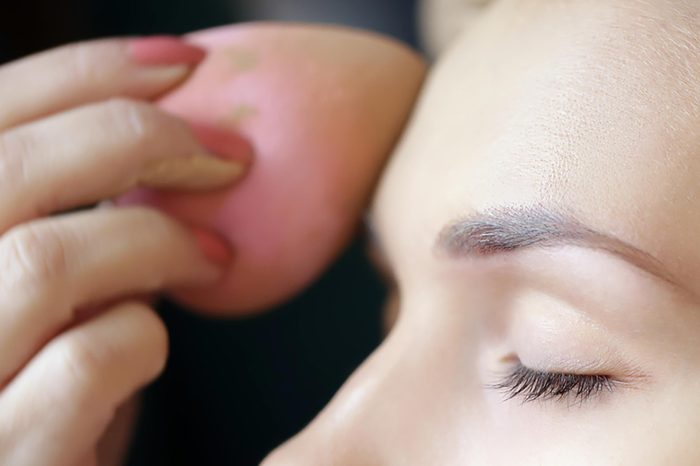
Silicone
“While true medical-grade silicone is actually not a bad filler substance, and may be helpful in treating thickened scars, I would not recommend putting it on acne-prone skin,” says Dr. Kantor. He explains that it can block pores. Ranella Hirsch, MD, president of Skincare Doctors in Boston, Massachusetts, agrees that silicone has some benefits. She says it can “improve the texture and feel of skincare products” and also create a barrier to make the skin appear smoother. “For some people, though, there can be an allergy to silicone or some of the inactive ingredients used to manufacture them,” Dr. Hirsch says. (Also, check out what can happen if you don’t wash your makeup tools.)
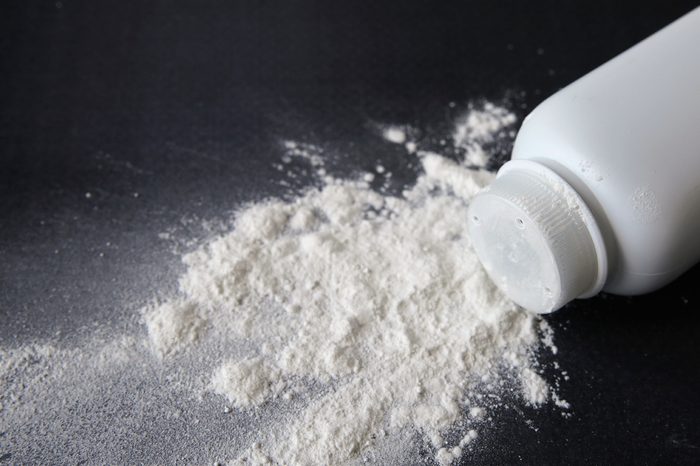
Talc
The use of talc in common cosmetic and household items (including baby powders and shower products) raised concerns when it was linked to the carcinogen asbestos and even ovarian cancer. However, Dr. Hirsch says it’s in wide use. “The question here is more the unknown,” she explains, referring to truly knowing whether it’s a harmful cosmetic. Dr. Kantor adds that talc, much like silicone, “is often maligned, but for the most part as an ingredient is not in itself a problem.” Do your best to stay informed and use your own judgment.
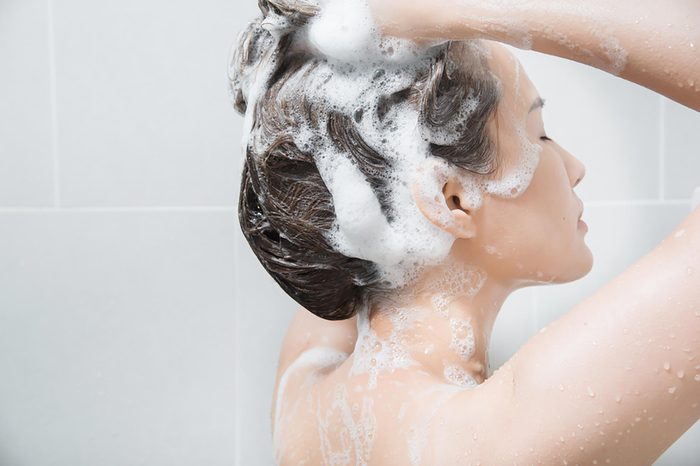
Parabens
Parabens are a family of chemical compounds used as preservatives. They’ll show up on ingredient lists as methylparaben, propylparaben, butylparaben, and ethylparaben. Parabens have been used for decades to enhance shelf life, Dr. Hirsch says. However, she adds that “data suggests that they can mimic estrogens and interfere with hormone function as a consequence.” Hormonal changes may play a role in what causes acne. Therefore, you might want to consider preservative-free cosmetics. If you do, Dr. Kantor recommends storing them in the refrigerator. Preservative-free cosmetics, he explains, “often go bad pretty quickly.” Your breakouts might be trying to tell you an ingredient isn’t a good match for your skin.
Next, check out these home remedies that can treat acne.
